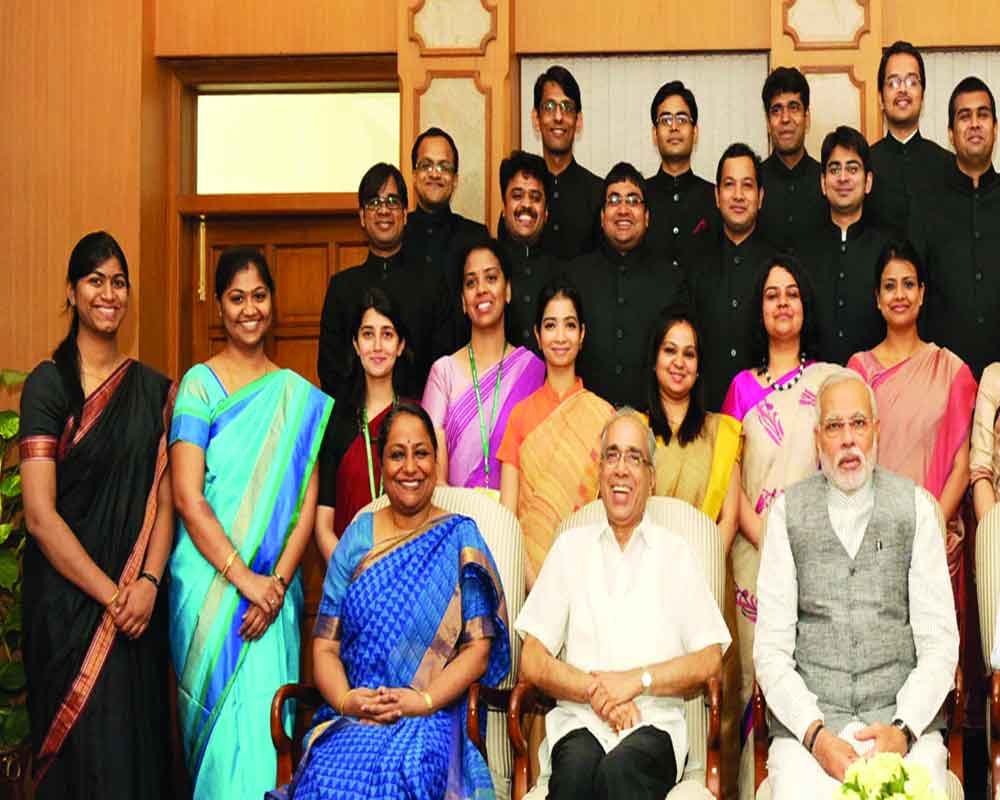Principles of new public management are needed to make administration facilitatory, rather than regulatory, to private enterprise and capital
Good Governance is necessary for development and citizen’s satisfaction. One of the indicators used by the World Bank to measure Governance is its Effectiveness, measured in terms of the quality of the civil service and the degree of its indepen-dence from political pressures, the quality of policy formulation and implementa-tion, and the credibility of the government’s commitment to such policies. India has improved its Percentile Rank in Governance Effectiveness, but remains low (66.8), much below Denmark and Norway (98), Australia (93.8), New Zealand (93) and even a single-party ruled country like China (72.6). Did our founding fathers err in their vision for the Civil Service?
As early as October, 1945, Sardar Vallabhbhai Patel had a resolution adopted at conference of Congress Chief Ministers authorising the setting up of two all-India services, the IAS and the IPS, to succeed the ICS (Indian Civil Service). Despite oppositions, Sardar Patel stood his ground for varied reasons - avoid an administrative gap and to retain the steel frame for a diverse republic as India.
A permanent civil servant isnot bound to any political party or leader, its autonom-ous nature makes it stand unique and therefore work independently for the welfare of society hence, is also accountable to the Constitution of India on which they take oath of allegiance. Patel’s public acknowledgment of the patriotism and dedication of public servants and his expression of trust in them, gave them the self-assurance without which they could not have given their best.
The services need to shed the colonial legacy that makes officers act as the rulers rather than as public servants. Rapid Assessment System (RAS) in which a generic technology-enabled platform is used for seeking real-time citizen feedback on public services have been tried in many countries with success.
A lack of articulated and consistent goals, mismatch between authority and accoun-tability which loosens the scope for fixing responsibility, duplication of roles, absence of a system of strong incentives or disincentives, in-adequate delegation or excessive discretion - all these bring slack in the system. Lean, accountable, empowered work teams with clear responsibilities are likely to deliver better results, as in the case of Elections, Census or disaster relief.
Interference by or collusion with politicians can come in the way of delivery of ser-vices as per rules. Sometimes, cases of transfer and posting receive greater attention that those of public policy. Tenures of officers are one indicator of the flux in the dynamic systems of governance. For example, tenures of Chief Medical Officers range from eight months to three years across the States. While political engage-ment and participation in governance is essential for ensuring accountability, trans-parency and garnering citizen’s perceptions, the bounds and norms of acceptable conduct are social constructs built over time.
The New Public Management (NPM) in the UK, Australia, New Zealand, Scandinavian countries represented an attempt to make the public sector more businesslike and in order to increase the performance of government, private sector management principles borrowed. It seeks to borrow from the private sector principles of flexibili-ty, transparency, minimum Government, de-bureaucratisation, decentralisation and market orientation. The main principle of NPM is to emphasise economy, efficiency, and effectiveness by downplaying the importance of regulation. It is not surprising that these countries score high on governance effectiveness index.
Today’s government is trying to inject more specialists into the bureaucracy through lateral hires at the level of Director and Joint Secretary. Globally, countries like US, Belgium, UK, Australia have in fact institutionalized this practice as a part of their system. Debates around lateral hires have centered around perceived lack of rigour in the selection procedure. It is feared that due to the pressure of a fixed time con-tract, the lateral hires might not express or put forward their views freely and in an unbiased manner.
There is no doubt that India’s permanent civil service needs reform. This is vital to the country’s progress and development. While the country needs talent and exper-tise to man specialized assignment, Patel’s ideals of permanent, unbiased, indepen-dent administrators who can work for the betterment of county with a loyalty to-wards the people and commitment to rule of law should be kept alive. The ideas of the Constitution makers need to be imbibed in the process of lateral hires. In addi-tion, principles of new public management need to be mainstreamed by amending our regulations to make the administration facilitatory, rather than regulatory to private enterprise and capital. This way the administration will be strengthened and made more relevant to current requirements.
(Sarwal is Additional Secretary,NITI. Dudi is anintern at NITI. The views expressed are personal.)


























